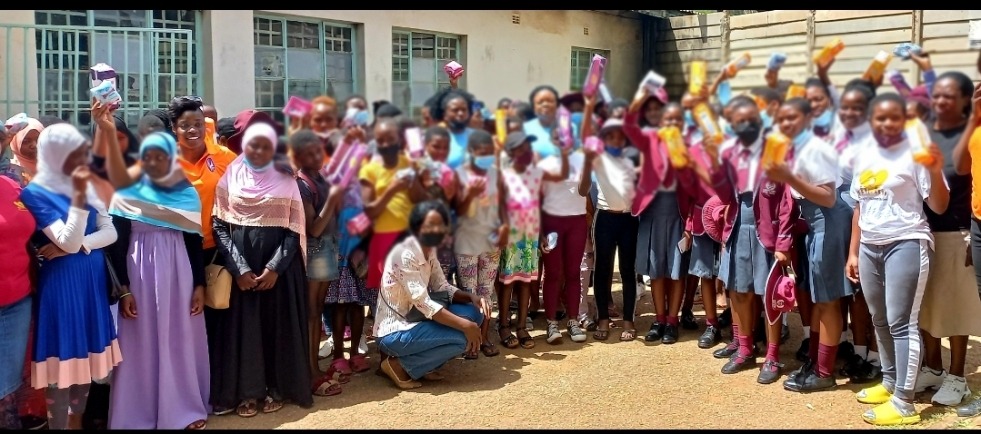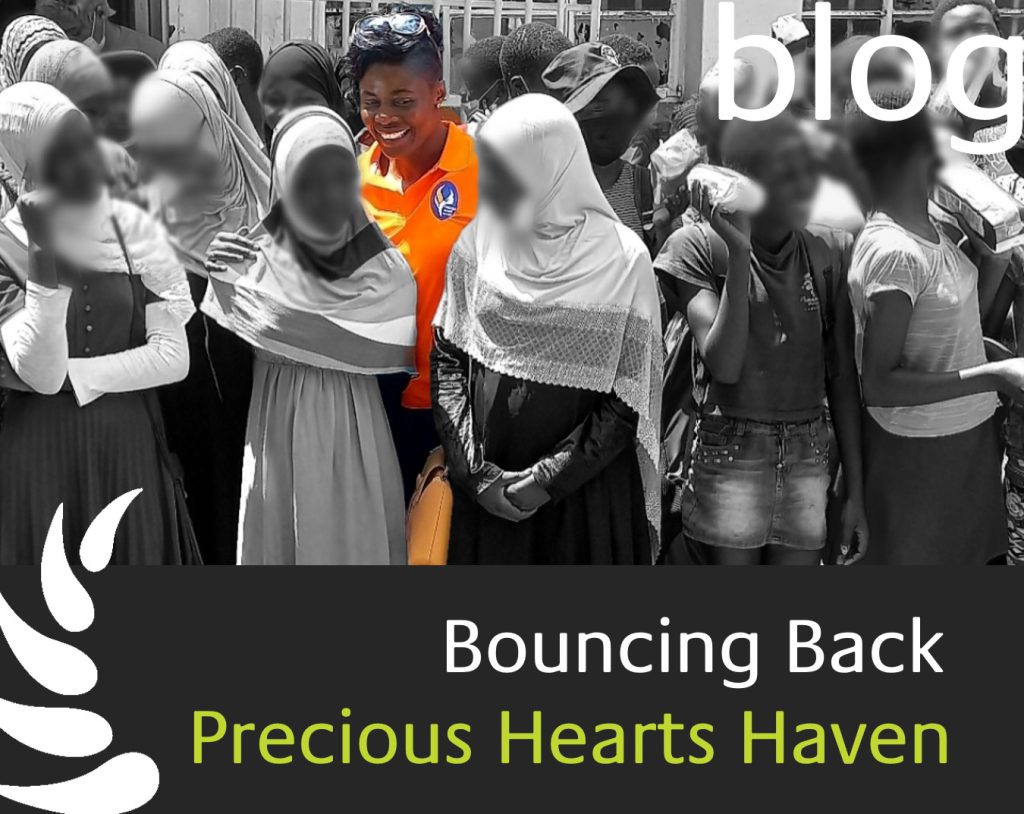by Sabriye Tenberken
The English term “survivor” is used too often and too lightly. These days, everyone who has surmounted a minuscule difficulty like overcoming a cold or passing an exam is a “survivor”. While we effortlessly incorporate these terms into our daily communication, it is easy to lose the deserved respect, both for the definition itself and for what lies behind it: a living person who defied death.
The kanthari selection process ensures that we work with an extraordinary number of actual survivors. Among the participants, we have those who come from war zones, had been abducted as children, and/or had to endure torture. Many were traumatized, but all those selected for the kanthari program need to have overcome their trauma. To find these special people, we have developed a very thorough system. Candidates go through a seven-step selection process. They must provide written information about their project plans, be intrinsically motivated, and be interviewed by psychologists who go deep to understand the applicant’s level of resilience. As a result, most of the selected participants are outstanding personalities who care more than the self-proclaimed “survivors” about making a difference in the world. They are not doing this to just leave a legacy or create a monument for themselves, but are acting out of existential necessities, out of an intrinsic need to improve society or certain conditions.
One of these survivors is Precious. Precious, who hails from Zimbabwe, became a foster mother very early in life due to the violent death of her oldest sister. A mother of two biological children, Precious witnessed humiliation at a young age, and she is a friend and mentor to many women who share Precious’ fate but never had the courage to draw conclusions from their experiences. Precious has learned to draw strength from her own story. Her experiences are disturbing and encouraging at the same time.
Over the course of the last 13 years, I have heard many stories. I wouldn’t call myself jaded, but I am no longer easily shocked. However, the story Precious told me over several hours of conversation, accompanied by tears of anger as well as roaring laughter, clung to my daily thoughts for quite some time. It is a life story that could well serve as a template for a Hollywood psychodrama.
Many descriptions of her personal experiences will probably always ‘visibly’ remain in my memory. The dead body of her cousin, whom she had to identify as a child. He drowned in a river and in his struggle to survive had pulled his friend, who was trying to save him, into the depths by hugging him. The torture by her own husband, particularly the mock execution he enacted on her. He justified the act by saying that he only wanted to try out his new gun. Her suicide attempt using poison, which luckily didn’t work because her sister-in-law intervened in time. The many humiliations by the police and the court and finally the sad, recurring patterns and warning signs, which she initially ignored.
Today she recognizes these patterns immediately, not only in her own story but also in retrospect in that of her oldest sister, who was beaten to death by her husband in the open street. And she can now identify them in the life stories of countless women in Zimbabwe.
These patterns and recurring warning signs motivated Precious to look more carefully. And slowly, step by step, she became an expert in detecting red flags, not only for herself but especially for other women.
Precious’ experiences are not the subject of this blog post. We have written about these already in https://www.kanthari.org/journey-to-hell-and-back/.
I am interested in something else here: how is it possible that people who have faced death multiple times, who have been so humiliated that they had nothing left to lose, pull themselves out of the mire? What does it take to gain strength from great suffering? And how can this strength be translated into constructive action? In summary: what is the secret of resilience?
I like to delve deeper into definitions, especially when they are overused to dilution in everyday life. Sometimes part of the explanation lies in the origin of the word, here in Latin resilire, translated: to bounce off or bounce back. When I think of this, the first thought that comes to mind is a tennis ball that I throw with force against a closed garage door. What can be observed? There is a loud bang, the force of the impact causes a momentary deformation, but quite quickly the ball is recovered and can be thrown again. While an egg or a glass ball, shatters at the slightest impact, a tennis ball is almost indestructible. It can adapt to the environment for a brief time, yielding to pressure, but it also has an internal shape to which it will quickly return as soon as the external pressure is released.
Quick adaptability, flexibility, and the ability to reflect seem to be important characteristics of survivors. However, for survivors to make a positive contribution to others, they must also be able to recognize their own failures and value them as the impetus for solutions.
Without question, Precious is resilient. She was flexible and able to withstand short successive crises without suffering long-term damage. On the contrary. In retrospect, she has even gained strength and is now, in her mid-30s, ready to advocate for other women.
“I don’t need counseling.” She says emphatically. “For me, there’s no better way out of hell than to empower other women in crisis and ultimately put smiles on their faces!”
Precious took the stage here at kanthari TALKS four months ago and many viewers offline and online were encouraged by her speech.

When Precious returned to Zimbabwe she was thrilled by the outpouring of support from friends and family. This is rather unusual because very few relatives of kanthari graduates understand that everything can change after coming back from kanthari. Lucrative jobs are often turned down by kantharis who instead take care of something that, in the eyes of many friends and relatives, has little prospect for the future. Only when the organization has steady financial support and the employees can earn a living, is it grudgingly acknowledged that maybe the era has changed and that other priorities are now being set.
In Precious’ case, things are different. She strikes a nerve with her project to give women from violent marriages a refuge and prepare them anew for society because violence is everywhere -almost in every family.
A few days ago, she and her team held a workshop with 120 young people, who were hesitant at first, but then, stimulated by interactive games, slowly but surely came forward with their own observations and reports. In groups, but also individually, they shared experiences in their families or in their neighbourhoods. “And many of these stories,” Precious said, “are similar to mine in many ways.”
And yet there are many women who break under the weight of the social taboo, of maintaining a happy facade. Most are in need of therapy, and many will only survive if they find a place of retreat, a women’s shelter where they are safe from their tormentors for a while.
In contrast, there are only a few who, like Precious, “bounce back” and demonstrate resilience, a handful of women who can transform their own experiences into positive social change.
Precious, we are sure, we will be hearing a lot more about you and Precious Hearts Haven.
Precious Hearts Haven takes a four-step approach:
Step 1: Raising awareness.
The organisation addresses the taboo of spousal violence in workshops with women and men. It also ensures that victims and perpetrators learn to talk about it in schools and church congregations.
Step 2: Precious Hearts Haven:
Creating a temporary safe place, for women and girls, where they are safe from their husbands. From there, they can take legal action against the perpetrator. The organization offers legal assistance and psychological counselling if needed. Precious Brother has provided it with an initial house on a transitional basis. For a long-term project, Precious is looking for land and financial help to build a house that functions as a safe haven for women and children.
Step 3: Transition to life:
After the initial healing phase, the women can attend workshops together with other victims. In these workshops, they are made aware of common patterns, the alarm bells of a cycle of violence. This also involves learning about non-violent communication as well as conflict resolution.
Step 4: Kubatana (i.e. connection):
Once the women can take charge of their own lives, the organization offers them intensive vocational training, with a particular focus on working in the restaurant industry. From Precious’ own experience running a successful restaurant, she knows how sharing a drink or a meal in a friendly environment connects and invites an open exchange, even about difficult topics.
Therefore, Precious is planning for the long-term future to start a Kubatana chain of restaurants, with smaller and larger eateries, all run by affected but now healed women. Kubatana will also stand for non-violence and open communication.
Precious’ team hopes that both these places and the women who, despite their history, are now in leadership positions, will help to slow down the spiral of violence in Zimbabwean culture step by step.



